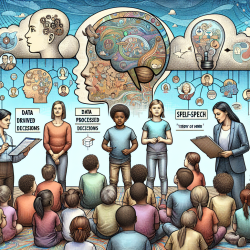Understanding the Bidirectional Impact of Maternal Mental Health on Adolescents
As a practitioner in the field of child development and mental health, understanding the intricate dynamics between maternal mental health and adolescent internalizing problems is crucial. A recent longitudinal study conducted in Northern Ireland sheds light on the bidirectional relationship between these two variables, particularly in contexts of political violence and social deprivation.
The Study: A Deep Dive
Conducted over six years, the study involved 999 mother-adolescent dyads in Belfast, Northern Ireland, an area historically affected by political conflict. Researchers employed latent change score modeling to analyze the trajectories of maternal mental health and adolescent internalizing symptoms. The study aimed to understand how maternal mental health impacts adolescent internalizing problems and vice versa, especially under the influence of external stressors like political violence.
Key Findings
The study revealed several important findings:
- There is a bidirectional relationship between maternal mental health and adolescent internalizing symptoms. Higher symptomology in one member of the dyad predicted an increase in symptoms for the other member in the following year.
- Political violence and social deprivation exacerbate symptoms in both mothers and adolescents, intensifying the bidirectional relationship.
- These findings highlight the importance of addressing both maternal and adolescent mental health in intervention strategies, especially in politically and socially unstable environments.
Implications for Practitioners
For practitioners, these findings underscore the necessity of a holistic approach to mental health interventions. Here are some strategies to consider:
- Family-Centered Interventions: Develop programs that address both maternal and adolescent mental health simultaneously, recognizing the interconnected nature of their well-being.
- Community-Based Support: Implement community support systems that mitigate the effects of political violence and social deprivation, providing a buffer for families in high-risk areas.
- Longitudinal Monitoring: Encourage ongoing monitoring of mental health symptoms in both mothers and adolescents to identify and address emerging issues early.
Encouraging Further Research
This study opens the door for further research into the mechanisms driving the bidirectional relationship between maternal mental health and adolescent internalizing problems. Practitioners and researchers are encouraged to explore:
- The role of paternal mental health and its interaction with maternal and adolescent mental health.
- Long-term outcomes of interventions targeting both maternal and adolescent mental health.
- The impact of different types of political violence on family dynamics and mental health.
Understanding these dynamics can significantly enhance the effectiveness of interventions and improve outcomes for children and families in challenging environments.
To read the original research paper, please follow this link: Bidirectional effects between maternal mental health and adolescent internalizing problems across six years in Northern Ireland.










